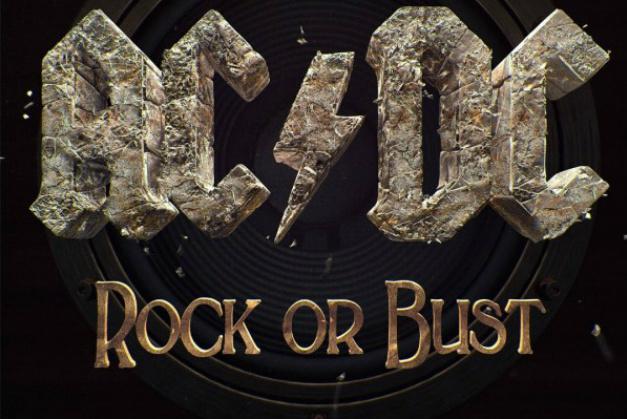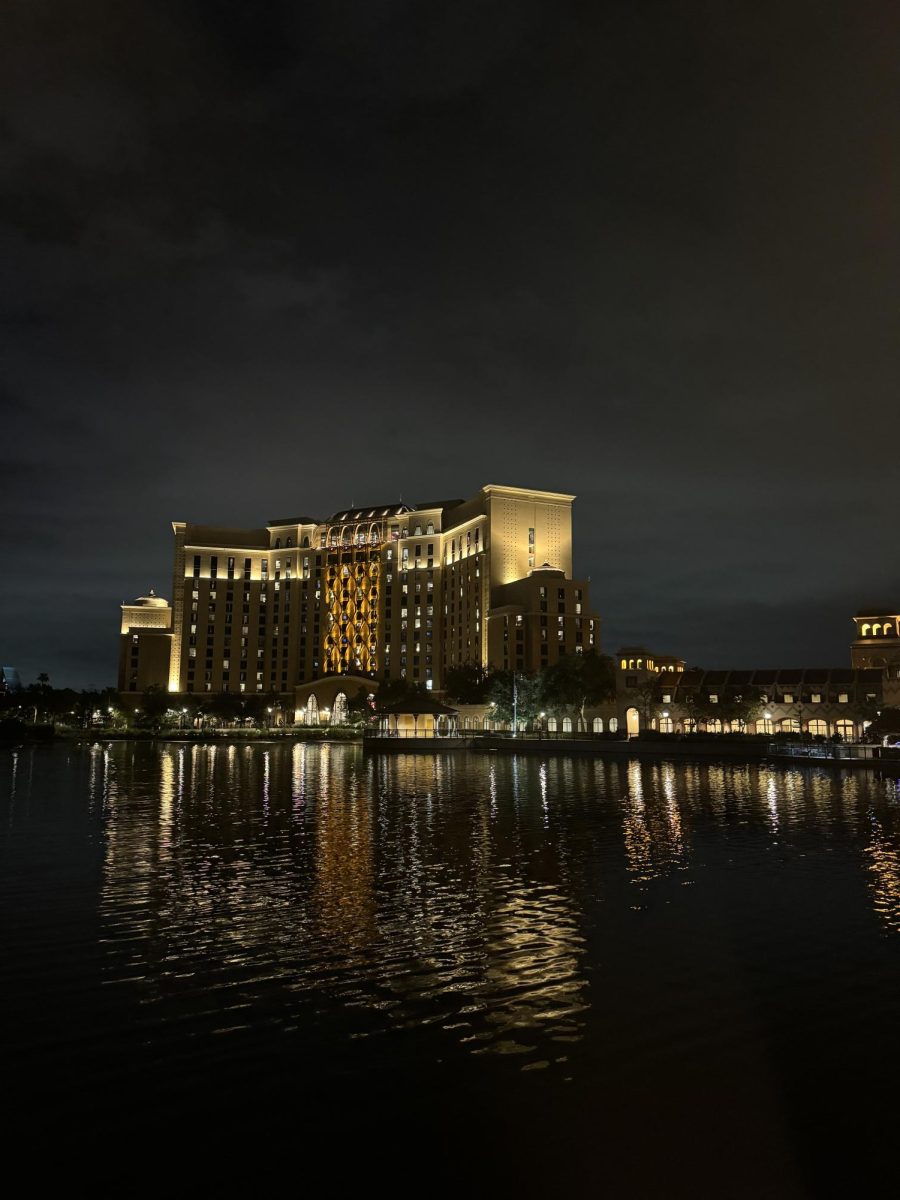“You hear the guitar sound/Playin’ nice and loud” Brian Johnson sings in the first verse of the title track of the new AC/DC album, Rock or Bust. It’s slightly elementary; you could probably guess “sound” and “loud” are going to link with one another as you listen to the line, but it simply works flawlessly in context.
Rock or Bust is about the sound…and man is it loud.
The compilation was released back in December to largely positive reviews. It is the first band album without founder and rhythm guitarist Malcolm Young, who retired from playing after he was diagnosed with dementia and replaced by his nephew Stevie.
While the producer of an album, in this case the heralded-Brendan O’Brien, is very much behind its sound, it does not come to life without the sound engineer. The man or woman working the board is the one who ultimately makes the songs sound the way they do when they first touch your ears, and are there for the process when the music is laid down for the very first time.
Mike Fraser is no stranger to just AC/DC, but rock and roll as well. The Canadian has mixed 10 projects for the juggernaut Australian band, including five studio albums, but his work extends to the likes of Aerosmith, Metallica, Rush, Bryan Adams among dozens of others. He is the man behind the sports anthem “Thunderstruck” along with every other AC/DC track post-1990, adding to his already impressive resumé.
I had a chance, on behalf of ACDCFans.net, to speak with Fraser and discuss his timeline of work with the band.
Jon Alba: You’ve now mixed five AC/DC studio albums, each with their own different sound. For example, Ballbreaker and Stiff Upper Lip are a little more dry and raw, while Rock or Bust is very anthemic. What goes into deciding how the album is going to sound with this band? Which is the favorite of those you’ve mixed (including live pieces)?
Mike Fraser: “AC/DC decide their own sound to an great extent. For example, on Ballbreaker and Stiff Upper Lip, they wanted a really dry sound. As an engineer, it’s my job to translate what the band and producer want and make it sound as good as I can. I am a huge AC/DC fan first and foremost and I approach working with them like that. At the end of the day, it has to sound like they want it to. I don’t know if I have a favorite. Looking back though, ‘Thunderstruck’ wasn’t too bad of a ditty.”
JA: The real star of this album, in my opinion, is Brian Johnson. Through Black Ice and Rock or Bust, he has basically reversed-aged and sounds better than ever. How do you go about making that possible? Are there any special doubling effects/chorus effects added to help accomplish this?
MF: “I agree, Brian did an awesome job on this record! Brian’s headspace and physical ability are on a real high right now. His racing and the TV show ‘Cars That Rock’ are his big passions right now. Racing keeps him in great shape which helps out his vocal performances and it really shows.
Brendan has been a giant influence on the vocals of these last two records as well. Once we’ve tracked the songs, Brian and Brendan would disappear to another room at the Warehouse to do vocals while Angus and I would concentrate on the guitar side of things. Brendan has a really good bond with Brian and is able to get great things out of him in a short period of time.
For me the real stars were Angus and Stevie. Mal not being able to do the record was a real blow, and Angus really had to come to the forefront with the writing, performing and keeping it all together. It was a huge weight on his shoulders. I think without his brother and comrade in arms he did a fantastic job. On top of it, Stevie had to come in and fill a pretty big pair of shoes. He did brilliant and really added to this record.”
JA: Stiff Upper Lip saw very basic backup vocals for the boys. Fast-forward to Black Ice with Brendan O’Brien in charge, and Rock or Bust, and the backup vocals are dramatically different, much more produced and polished. How do you go about getting the sound for backup vocals, and who is involved with recording them (Cliff, Stevie, etc.)?
MF: “Cliff, Angus and Brendan did all the background vocals. We’d just get them all in front of a single mic and kept singing until it sounded right.”
JA: The guitars sound unquestionably meaner on Rock or Bust than the past several AC/DC albums. How much of that is because Angus used the Schafer Replica given to him by a die-hard fan in the studio? Was it used on the album? What about getting Stevie’s sound?
MF: “Angus used the Schafer Replica on a lot of the solos, but none of the rhythms. For rhythm guitars, we just cranked the amps a bit more. Stevie used Mal’s setup and a Gretsch guitar. We wanted to make sure that Mal’s sound was well represented. The AC/DC sound is the combination of Mal and Angus’ guitars. The toughness of this record came from Angus and Stevie playing with attitude. Stevie had big shoes to fill so he dug in hard.”
JA: How was the recording process different without Malcolm around?
MF: “The process was very much the same on this as with the other records I’ve done with them. But like I said earlier, there was a lot more weight on Angus’s shoulders this time. Mal is an amazing guitar player as well as great guy, so he was and always will be missed.”
JA: Many of AC/DC’s albums in the mid-to-late 80s were panned for their production (Fly on the Wall/Blow Up Your Video, for example). Would you ever be interested in re-mixing them, if given the opportunity?
MF: “I think what’s past is past. I’d love to remix anything for a bit of fun, but for a re-release, no.”
JA: There’s a lot less “fat” on Rock or Bust as whole, with it ultimately coming out to AC/DC’s shortest album of all-time. Does that factor at all into how you mix it, trying to get the most out of it?
MF: “Album length does not factor at all how much you put in to it. Each song is its own little gem and takes as much care and hard work as the next song. Nothing was planned or discussed as to how long this record was going to be, but in hindsight, I think we gravitated towards what vinyl records used to be: short and sweet with not a lot of filler.”
JA: Let’s rewind to Ballbreaker, real quick, back in the mid-90s. Rumors have long spread the band was unhappy working with legendary producer Rick Rubin. In fact, you are given co-producing credits for the album. What led to that, and do you have any specific memories about recording that album?
MF: “I don’t really want to talk about Ballbreaker much. It was probably one of the tougher records I’ve made with the guys. We spent six weeks in New York tracking and came away with very little, so we moved it all to L.A. and had to start over again. It felt like a very long record, and by the end of it we were exhausted.”
JA: Were there any leftovers or extended cuts of some tracks off the past several albums that haven’t seen the light of day?
MF: “There was maybe a riff or and idea here or there, but if it doesn’t develop into a song pretty quick, it gets tossed. There isn’t really ever a leftover song with these guys.”
JA: Last question. At this stage in their career, were you surprised the band was able to pack this much energy into what could be their swan song (such as the rumors of Angus lighting another amp on fire)?
MF: “Yes, there was an amp fire. I think it was at the end of the take of ‘Emission Control.’ I have an outtake somewhere with everyone yelling, ‘Ang…Ang…your amp is on fire!’ (laughs).
This band always does everything “on 10.” When they play it, they always play it with the most fire they can, otherwise what’s the point? These guys are the real deal, and I don’t think I’ve ever worked with a band that has so much fire in their bellies as AC/DC. So no, I am never surprised at the energy they have. If they can’t give 100 percent, then I think that will be the day they hang it up.”
AC/DC will return to the stage for the first time since June of 2010 at the upcoming Grammy Awards Feb. 8. With drummer Phil Rudd currently in limbo with the New Zealand court system, it is unknown at this time who will be behind the kit. The band will kick off its tour in support of the new album at the Coachella music festival in April.
For more information on Mike Fraser, visit his official website.





